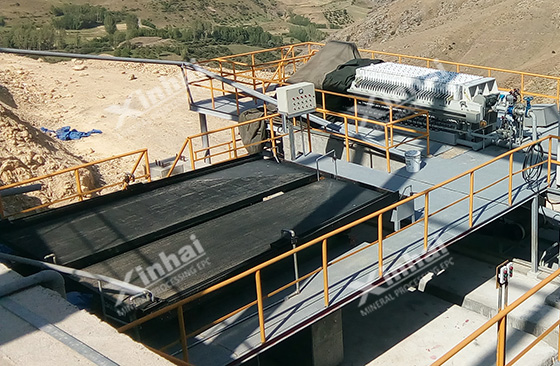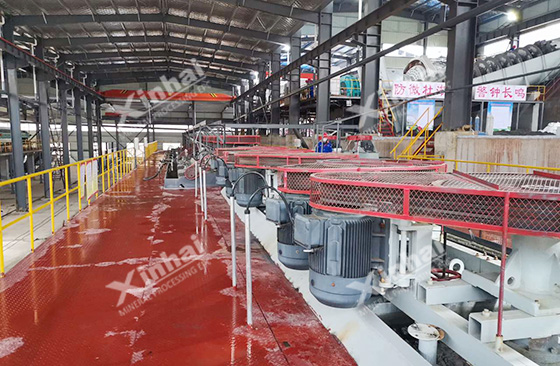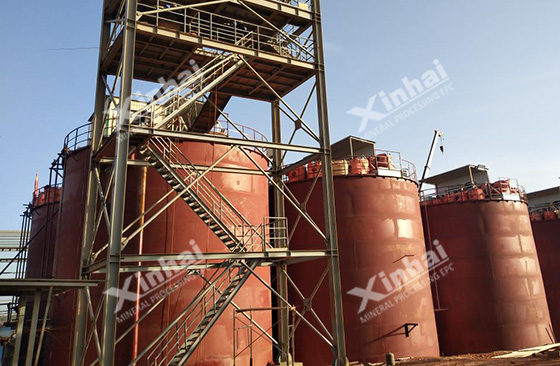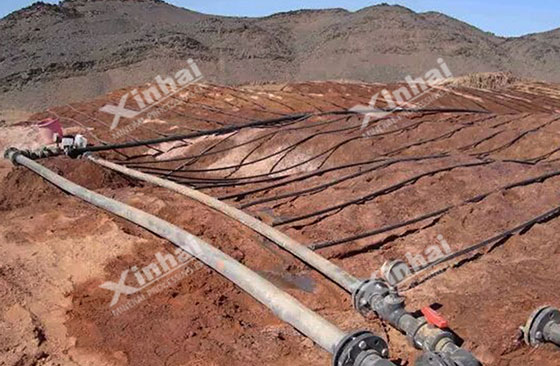
In the production, the gold extraction processes are also varied according to the different gold mine properties, which mainly include the gravity separation process, froth flotation process, amalgamation process, cyanide process and resin in pulp process. For some kinds of gold mines, the combined gold extraction processes are often used to separate the gold.
Taking the vein type gold mine as an example, the common gold extraction processes mainly include single amalgamation process, amalgamation-gravity separation process, gravity separation (amalgamation)-cyanide process, single froth flotation process, amalgamation-flotation process, all-slime cyanidation process(CIL or CIP), froth flotation- cyanide process, froth flotation-gravity separation process, heap leaching process.
This gold extraction process is suitable to treat the coarse-grained gold contained quartz vein primary gold deposits and oxidized mines. Amalgamated gold extraction is an ancient and universal gold extraction process. Since the gold is mostly free in mines, some gold grains in all mines can be recovered by amalgamation. It has been proved that using the amalgamation process to recover some gold particles in advance can obviously reduce the loss of coarse gold in tailings.
This kind of gold extraction process is divided into two schemes: Amalgamation first and then gravity separation, or gravity separation first and then amalgamation. Amalgamation first and then the gravity separation process is suitable for treating simple quartz vein type gold-bearing mines. Gravity separation first and then amalgamation process is suitable for treating the gold mines with large gold grains but is polluted and recovered by the oxidation film, not easily mixed with mercury, and the mines with low gold content.

This kind of gold extraction process is suitable for treating quartz vein type oxidized gold mine. First, the raw mine is separated by the gravity separation process, and the concentrate obtained by the gravity separation is sent to amalgamation. Or the raw mine can be treated with the amalgamation directly, and the tailings, grading mine and mixed sand can be cyanicated separately.
This kind of gold extraction process is suitable for the treatment of quartz vein mine with fine gold particles, high floatability of sulfide, polymetallic gold-bearing sulfide mine and carbon- (graphite) containing gold mine.

This gold extraction process is to first use amalgamation to recover the coarse gold in the mine, and the amalgamation tailings are treated with froth flotation. This gold extraction process is suitable for the treatment of gold mine after the single froth flotation process, gold-bearing oxidized mine and associated free gold mine. And this gold extraction process can obtain a higher gold recovery rate than the single froth flotation process.
Gold is produced in quartz vein mine in the form of fine or micro-fine dispersion. The mine is highly oxidized and does not contain Cu, As, Sb, Bi or carbon. This kind of gold mine is best suited to all-slime cyanidation process.
Cyanidation is one of the main gold extraction processes to separate gold and silver. Gold extraction with this process has the advantages of high recovery rate, strong adaptability to mine and property gold.

Gold extraction by cyanidation consists of four main steps: leaching of gold mine in cyanidation solution, separation of gold liquor and leaching residue, precipitation of gold leaching and smelting of gold mud. The disadvantage of this gold recovery process is that cyanide is a highly toxic substance and easily pollutes the environment.
(1) Froth flotation- concentrate cyanide process. It is suitable for treating quartz vein gold bearing mine and quartz pyrite mine which are closely related to gold and sulfide.
(2) Froth flotation-roasting-cyanide process. This gold extraction process is suitable for dealing with minerals that contain floatability and are harmful to cyanidation, with which only a small amount of gold is bound.
This gold extraction process is focused on the froth flotation process, which is suitable for mines with close co-existence between gold and sulfide and can only be recovered by smelting. It is also suitable for gold-bearing quartz vein mines with uneven coarse intercalation, which can obtain a higher gold recovery rate than the single froth flotation process.
Heap leaching is a type of cyanide process for gold extraction, which is often used to treat the gold mine with a low grade. This gold extraction process has a simple process, low investment and low cost.

The above nine gold extraction processes are the common processes used to separate the vein type gold mines. The selection of gold extraction processes shall be different according to the type and nature of the gold mine being processed.
To find out more about our products and solutions, please fill out the form below and one of our experts will get back to you shortly.